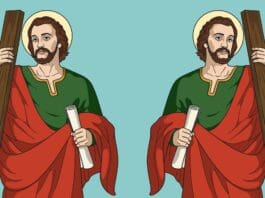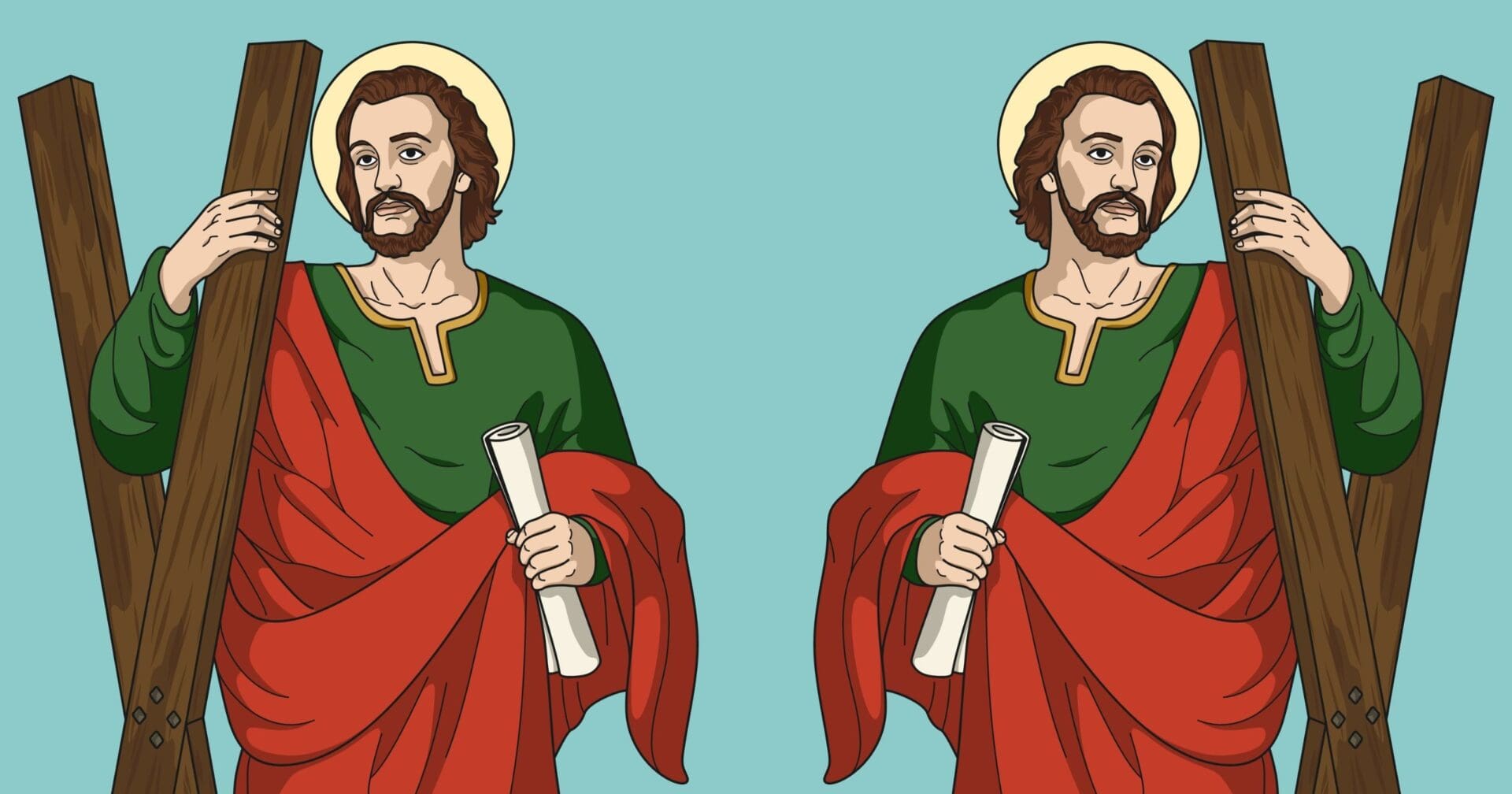
Saint Andrew holds a significant place in Christian history as the first disciple of Jesus. Born in the town of Bethsaida on the Sea of Galilee, he and his elder brother, Saint Peter, made their living as fishermen. Their lives took a transformative turn when Jesus beckoned them with the promise of becoming “fishers of men,” leading them to abandon their fishing trade to follow him.
Initially, St. Andrew was a disciple of St. John the Baptist. However, his allegiance shifted when John proclaimed Jesus as the “Lamb of God.” Recognizing Jesus’ superior divine status, Andrew promptly chose to follow Jesus, even bringing his brother Simon Peter to him, who was also called to be an apostle.
Despite their continued work as fishermen, St. Andrew and St. Peter cultivated a closer relationship with Christ, ultimately dedicating themselves entirely to his teachings. Following Christ’s crucifixion and resurrection, St. Andrew devoted himself to spreading the gospel. His missionary journeys took him to Asia Minor and as far as Kiev in Scythia. While the Book of Acts in the Bible does not extensively detail St. Andrew’s life, his evangelistic efforts are well-acknowledged.
St. Andrew’s life culminated in martyrdom. He was crucified in Patras, Achaea, in Greece. Out of a sense of unworthiness to be crucified in the same manner as Jesus, he requested an X-shaped cross, known as a Crux decussata. Suffering for two days before his death, he continued to preach the gospel of Jesus Christ.
Despite the limited biblical account of his life, St. Andrew’s story is a testament to unwavering faith and devotion. Along with his brother, St. Peter, he abandoned a lifetime of fishing to follow Jesus, a decision that stands as an inspiring example of faith for Christians.
St. Andrew’s relics, including a small finger, part of his cranium, and pieces of his cross, are enshrined in the Church of St. Andrew in Patras. Revered as the patron saint of Scotland, Russia, and Greece, his legacy is celebrated globally, particularly on Saint Andrew’s Day on November 30th. The Scottish flag, featuring the Cross of St. Andrew, symbolizes his enduring influence and legacy.
Photo credit: Luis Fraga / Shutterstock.com
The post Saint Andrew the Apostle appeared first on uCatholic.
Daily Reading
Monday of the Fourth Week of Advent
Reading 1 Mal 3:1-4, 23-24 Thus says the Lord GOD:Lo, I am sending my messengerto prepare the way before me;And suddenly there will come to the templethe LORD whom you…
Daily Meditation
Messages From Above
Click here for daily readings Have you ever thought about how many inspirations we may reject in one day because we don’t believe they were from God. The next question…




